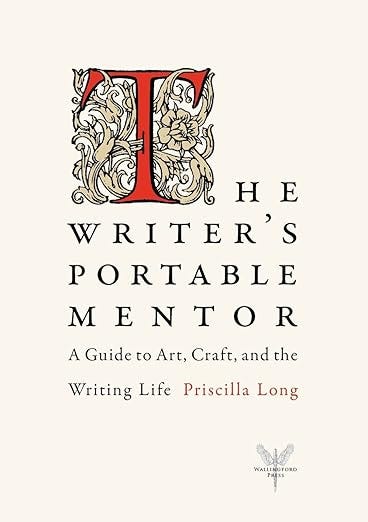Who Are Your Writing Mentors?
Who truly shapes your writing—whether it’s a seasoned mentor, a favourite author, or the unexpected wisdom found in everyday life? Discover the mentors you didn’t even know you had.
Every writer dreams of finding that one mentor who can unlock their true potential—a seasoned guide who offers wisdom, guidance, and a well-timed nudge to help you navigate the treacherous waters of storytelling.
If you’re fortunate enough to get into a structured writing mentorship with an experienced mentor, cherish it. It’s an incredibly valuable experience that can shape your writing in ways you never imagined.
Several years ago, I had such an opportunity to work with a prolific Canadian playwright. Her insight into scene setting, plot development, and character arcs transformed my writing. This mentorship was a turning point in my writing journey, equipping me with tools and techniques that continue to influence my work today.
But here’s the thing: mentors aren’t always older, more experienced writers who take you under their wing. You don’t have to wait for that gifted sage to come along and bestow their knowledge upon you – in fact, that’s unlikely. Mentorship comes in many forms and often arrives when you least expect it.
Discovering Mentors in Your Favourite Works
Then there are the authors you’ve never met but whose words have guided you nonetheless. For me, writers like Margaret Atwood, Patricia Cornwell, Harlan Coben, Stephen King, and many more have been mentors from afar. Their books and interviews have taught me lessons about writing that are just as powerful as those I learned from my in-person mentor.
Recommended reading:
Reading and studying authors helps you uncover the nuances of style, structure, and storytelling that make their work resonate. You'll begin to notice how they craft dialogue, build tension, and create vivid characters, all of which are essential skills for any writer. As you dissect their techniques, you can apply these lessons to your own writing, refining your voice and sharpening your craft with each new story you create.
Once in a while, an author you respect goes and disappoints you (cough-JD-Vance, cough-cough-Alice-Munro), but we don’t have to love or even approve of them to learn from them.
Plus, it’s pretty great to curl up with a book and have a legit reason to tell everyone to leave you alone; that you’re working. 😉
As much as we learn from established authors, the insights and support we gain from our peers can be just as invaluable in shaping our writing journey.
Finding Mentors Among Your Peers
Peers as mentors can be some of the most valuable relationships in a writer's life. These are the people who understand exactly what you're going through because they're walking the same path.
They know the struggle of staring at a blank page, the frustration of rewriting a scene for the tenth time, and the exhilaration of finally nailing a tricky plot twist. Because of this shared experience, peer relationships can foster a deep sense of camaraderie and trust.
You’re not just learning from each other but also motivating each other to keep going, even when the writing process feels overwhelming.
Having a peer group is crucial because writing is often a solitary endeavour. While you may spend long hours alone with your thoughts and keyboard, a strong group of peers can provide a vital sense of community. They offer fresh perspectives on your work, help you see your blind spots, and celebrate your successes with genuine enthusiasm.
In a peer group, you’re part of a collective where each member’s growth benefits the entire group, creating an environment where everyone can thrive.
However, as valuable as peer relationships are, it's important to establish boundaries and rules of engagement to ensure that these relationships remain productive and positive. Clear communication about expectations is key—whether it’s how often you’ll exchange work, the type of feedback you’re looking for, or how to handle disagreements. Without these guidelines, miscommunication or even tension can undermine the support system you’ve worked so hard to build.
Recommended reading:
For example, feedback can be tricky territory. While honest critique is essential for growth, it’s also important to be mindful of how you deliver it. Setting ground rules for constructive criticism helps to maintain a respectful and encouraging atmosphere. Likewise, understanding each other's boundaries—such as respecting personal time or agreeing not to share each other's work without permission—can prevent potential conflicts.
A peer group functions best when everyone feels safe, respected, and understood. This is what we’re building inside The Writers’ Den—a space where everyone is free to learn and grow together, making the mentorship within your peer group as effective as any formal mentorship you might find.
Learning from the World Around You
Beyond writers, who else influences your work? Who or what sparks your creativity? Often, our most significant mentors are not even writers at all. Life itself can be the greatest mentor if you’re open to it.
Maybe it’s a piece of art that stirred something in you, a song that perfectly captured the mood you were trying to create, or even a stranger’s conversation overheard on a bus that sparked an idea. The world is full of inspiration if you have the curiosity to seek it out and the patience to listen.
Sometimes, mentorship comes from the unlikeliest sources. A close friend or family member who believes in your talent can be a mentor. Their encouragement can be the fuel that keeps you writing, even when doubt starts to creep in. Perhaps it’s your child’s unfiltered imagination that inspires you to think outside the box, or a pet whose simple joy in life reminds you to take a step back and write from a place of love rather than stress.
Recommended resource:
Embrace All Forms of Mentorship
The key is to recognize and embrace these varied forms of mentorship. Your writing journey is uniquely yours, and so too are your mentors. They might not always wear the label, but they’re there, offering wisdom and guidance in ways both direct and subtle.
So, who are your writing mentors? Take a moment to reflect on the people, writers, and experiences that have shaped you. Whether it’s a formal mentor who sat down with you every week to discuss your work, a favorite author whose books you devour, or the world around you that continually offers new ideas—these are your mentors. They’ve helped shape you into the writer you are today, and they’ll continue to influence your work as you grow.
Remember, mentorship isn’t a one-time event but an ongoing process. Stay open to learning from everyone and everything. The more you embrace these varied sources of inspiration, the richer your writing will become.
In the end, your mentors are as unique as your voice, and the beauty of writing is that there’s always more to learn. Stay curious, stay open, and let the world be your guide.






